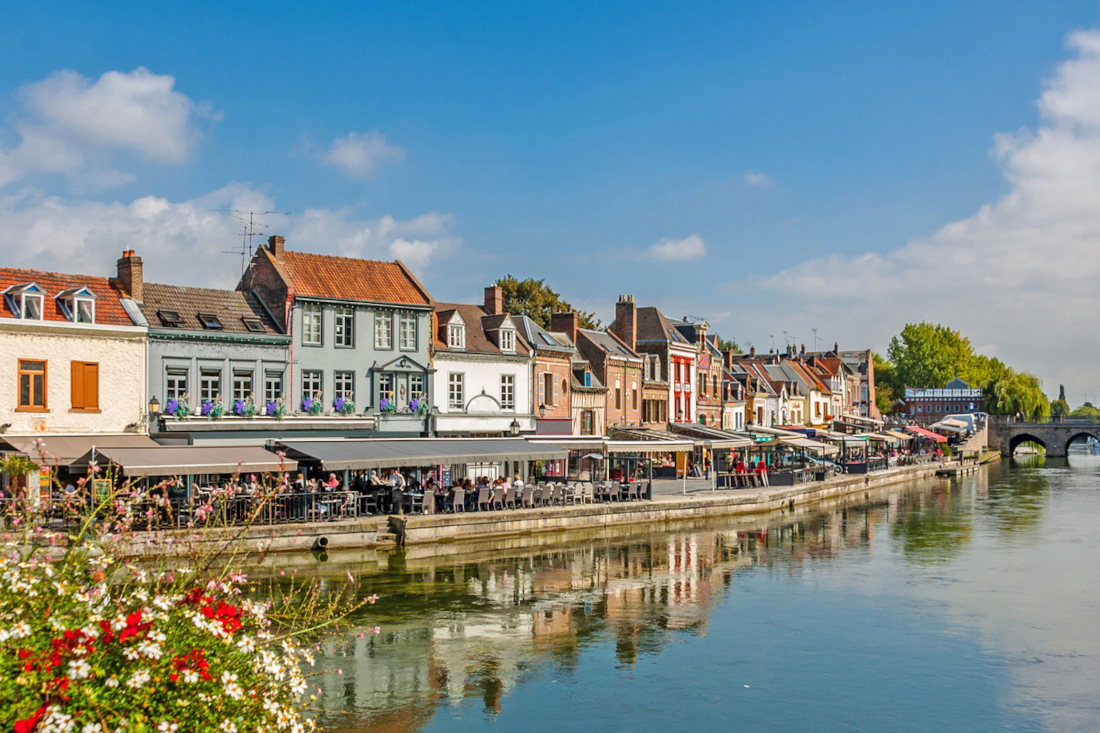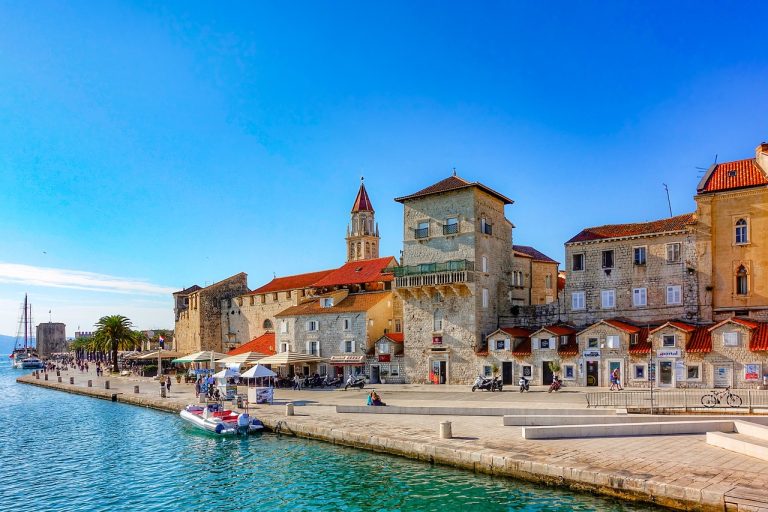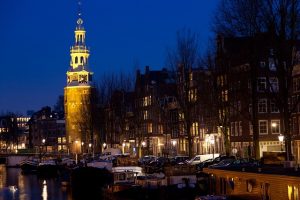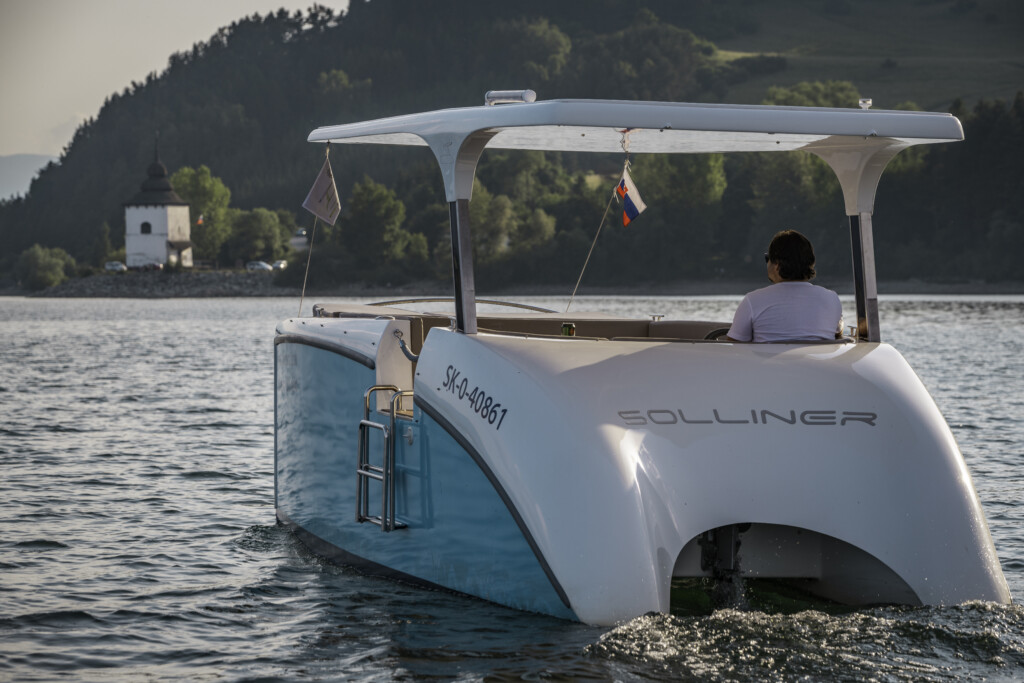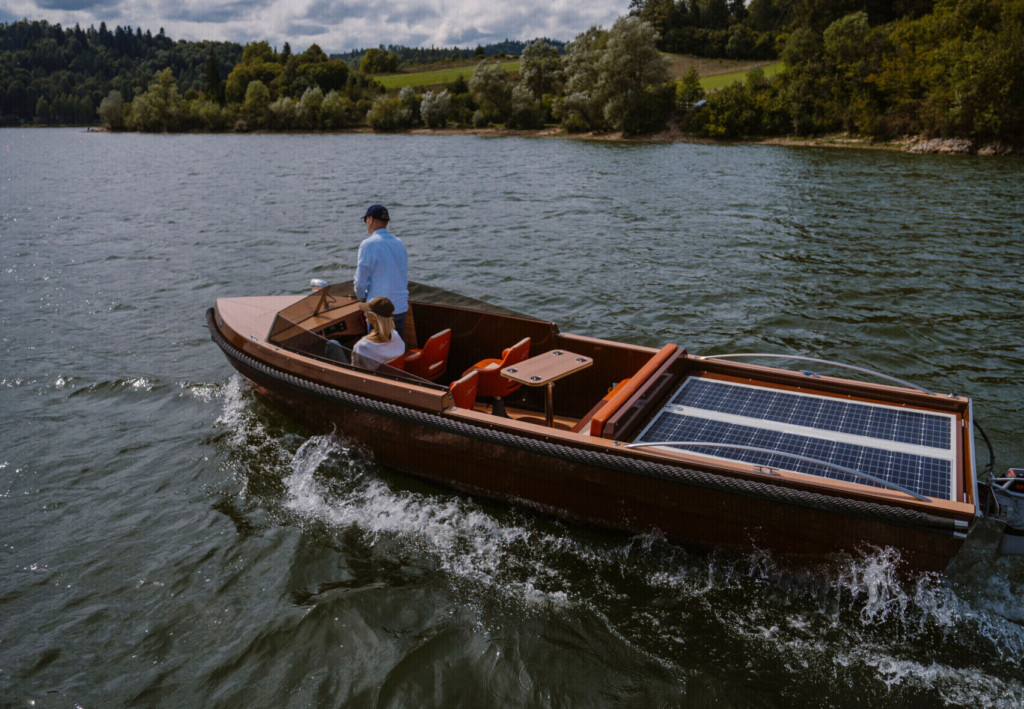Introducing the Solliner 31: A solar-powered masterpiece revolutionizing boating on Annecy’s canals, aligning perfectly with the aim for net-zero emissions by 2050
Annecy’s Sustainable Boating: Promoting Eco-Friendly Practices on the Picturesque Canals
Located in the picturesque region of Rhône-Alpes, Annecy is a charming city nestled in the French Alps. Known as the “Venice of the Alps,” the city is famous for its labyrinth of canals that wind through its medieval streets. These canals not only provide a breathtaking backdrop for tourists but also offer opportunities for boating enthusiasts. As the city strives to achieve net-zero greenhouse gas emissions by 2050, boating activities on the canals can play a role in this sustainability goal. By promoting eco-friendly boating practices, such as electric or solar-powered boats, Annecy can reduce emissions in its waterways and contribute to a cleaner environment. Incentivizing the use of renewable energy sources and encouraging responsible navigation, Annecy can ensure a greener and more sustainable boating experience on its picturesque canals.
Annecy and France’s Path to Achieving Net-Zero Greenhouse Gas Emissions by 2050: Challenges, Strategies, and Potential Benefits
Targeting net-zero greenhouse gas emissions by 2050 presents a significant challenge for Annecy and France. Annecy, known for its breathtaking landscapes and pristine lake, relies heavily on tourism, agriculture, and transportation, all of which contribute to greenhouse gas emissions. Implementing effective measures to achieve this ambitious goal requires a comprehensive approach. The region must prioritize sustainable energy sources and encourage the adoption of renewable technologies. Additionally, efforts should be directed towards improving energy efficiency, such as retrofitting older buildings and incentives for sustainable practices in the agriculture sector. The transportation system also plays a crucial role, requiring an increase in electric vehicle adoption, investment in public transportation infrastructure, and promotion of active modes of travel like cycling and walking. Furthermore, there is a need for education and awareness campaigns to engage citizens and businesses in adopting greener practices. While the challenge is daunting, the benefits of achieving net-zero emissions are immense, as it would not only protect Annecy’s natural beauty for generations to come but also contribute to the global fight against climate change.
The Financial and Environmental Advantages of Investing in Solar Boats: A Promising Path towards a Good Investment and Sustainable Future
When considering the features of a solar boat, one aspect stands out as being of utmost importance: its potential for being a good investment. Solar boats, with their ability to harness the limitless energy of the sun, offer significant advantages in terms of cost savings and environmental sustainability. As the world moves towards a goal of achieving net-zero greenhouse gas emissions by 2050, solar boats present a promising solution to reduce carbon footprints in the maritime industry.
Investing in a solar boat ensures long-term financial benefits through reduced operating costs. With no need for fossil fuels, the expenditure on refueling and maintenance is significantly diminished. Additionally, the solar panels on board generate electricity, which can also be used to power other systems, reducing dependency on external power sources. This self-sufficiency not only saves money but also contributes to a more environmentally friendly vessel.
Furthermore, solar boats have a longer lifespan compared to traditional vessels. With fewer moving parts and reduced wear and tear from combustion engines, maintenance and repair costs are substantially lower. The durability of solar boats ensures a higher resale value, making it a sound investment for both businesses and individuals.
Considering the global shift towards sustainable energy sources, investing in a solar boat aligns with targets to achieve net-zero greenhouse gas emissions. By choosing this eco-friendly alternative, boat owners actively contribute to reducing carbon emissions and combatting climate change. This aligns with international efforts to transition to cleaner transportation options, ultimately promoting a greener and more sustainable future.
In conclusion, the financial benefits and positive environmental impact make the aspect of good investment crucial when it comes to solar boats. As the world strives to reach net-zero greenhouse gas emissions by 2050, choosing a solar boat is a forward-thinking decision that not only ensures long-term cost savings but also contributes to a greener and cleaner planet.
Solliner 31: A Sustainable Solution for Achieving France’s Net-Zero Emissions by 2050
Investing in solar boats presents itself as a viable solution to achieve net-zero greenhouse gas emissions by 2050. France, known for its rich ecological diversity, can greatly benefit from this option. Solar-powered boats, such as the Solliner 31, harness energy from the sun to propel themselves, offering a sustainable and environmentally friendly alternative to traditional watercraft.
The Solliner 31, a 31-feet solar catamaran, is equipped with three deck options set to be available by mid-2024. It offers an Aferry option that can accommodate up to 12 people, a cabin catamaran variant, and an open deck version. This versatility caters to different needs and purposes, making it suitable for various applications such as transportation, leisure, and even eco-tourism.
By investing in solar boats like the Solliner 31, France can reduce its reliance on fossil fuels, thereby significantly reducing greenhouse gas emissions. The country’s extensive coastline and numerous waterways make it an ideal location for the adoption and implementation of solar-powered boats. Moreover, promoting the use of solar boats can lead to job creation and the development of a new sector in the renewable energy industry.

Transitioning to solar boats aligns with France’s commitment to the Paris Agreement and its push for a more sustainable future. This investment not only helps combat climate change but also supports the local economy while preserving the country’s natural beauty and resources. Ultimately, the Solliner 31 serves as an emblematic example of how solar boats can contribute to France’s efforts in achieving net-zero greenhouse gas emissions.
Check out the solar boat Solliner 31 and other Solliner boats on our site.

